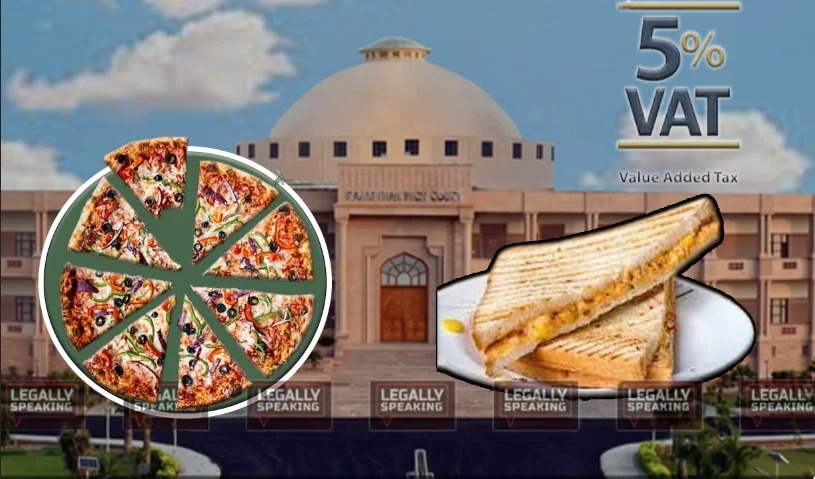
The Jaipur Bench of the Rajasthan High Court has recently held that the sale of ‘pizza’ and ‘sandwich’ qualifies as the sale of ‘cooked food,’ making it eligible for exemption from payment of Value Added Tax (VAT) exceeding 5%.
The Bench of Justice Sameer Jain has observed that the term ‘cooked food’ encompasses dishes commonly consumed during regular meal times.
However, societal eating habits and evolving times have rendered the Tax Board’s reasoning, which denies the classification of ‘pizza’ and ‘sandwich’ as ‘meals,’ somewhat flawed.
In any case, since the finding of the Tax Board is not based on cogent evidence, it cannot be sustained.
The petitioner-assessee’s restaurants fall below the 3-star category, and the preparation of ‘pizza’ involves the baking process, which is one of the various cooking methods.
The petitioner argued that ‘pizza’ constitutes a comprehensive food source, providing essential nutrients such as carbohydrates, fats, vitamins, proteins, minerals, and more.
Similarly, a sandwich is crafted by slicing a bread loaf, prepared in-house, in half and filling it with either a vegetable patty or a non-vegetarian ingredient like meat or chicken, which are meticulously fried and heated. The sandwich includes an assortment of fresh vegetables and sauces, forming a complete meal of substantial nutritional value and nourishment. The petitioner-assessee prepares and sells these sandwiches to diverse customers.
The Tax Board classified ‘pizza’ and ‘sandwich’ as ‘baked branded products’ rather than ‘food.’ They concluded that these items don’t fall under the ‘cooked food’ category based on the common understanding theory. The general public does not perceive these products as substitutes for regular meals consisting of vegetables, chapatti or roti, rice, and other staples.
The petitioner argued that the department failed to fulfill its burden of proving that ‘pizza’ and ‘sandwich’ are not cooked foods. No expert or technical opinions were sought, and no evidence was presented to substantiate their claims. Instead, the revenue authority relied on definitions from ‘Wikipedia,’ misinterpreting them in the process.
Further, the petitioner pointed out that subsequent notifications issued by the state government on July 14, 2014, and March 9, 2015, categorized ‘pizza’ and ‘sandwich’ as part of the broader ‘cooked food’ classification.
Therefore, it was contended that the state government intended to consistently treat ‘pizza’ and ‘sandwich’ as cooked food.
Conversely, the department argued that the goods sold by the assessee don’t fall within the realm of ‘cooked foods’ and are more aptly described as ‘branded baked products.’
Consequently, the petitioner-assessee would not be entitled to the exemption notification. According to the common understanding prevalent in India, particularly in Rajasthan, ‘pizza’ and ‘sandwich’ are not considered as ‘cooked food.’
The court took note that, according to a notification dated March 9, 2015, the state government itself acknowledged ‘pizza’ and ‘sandwich’ as ‘cooked food.’




